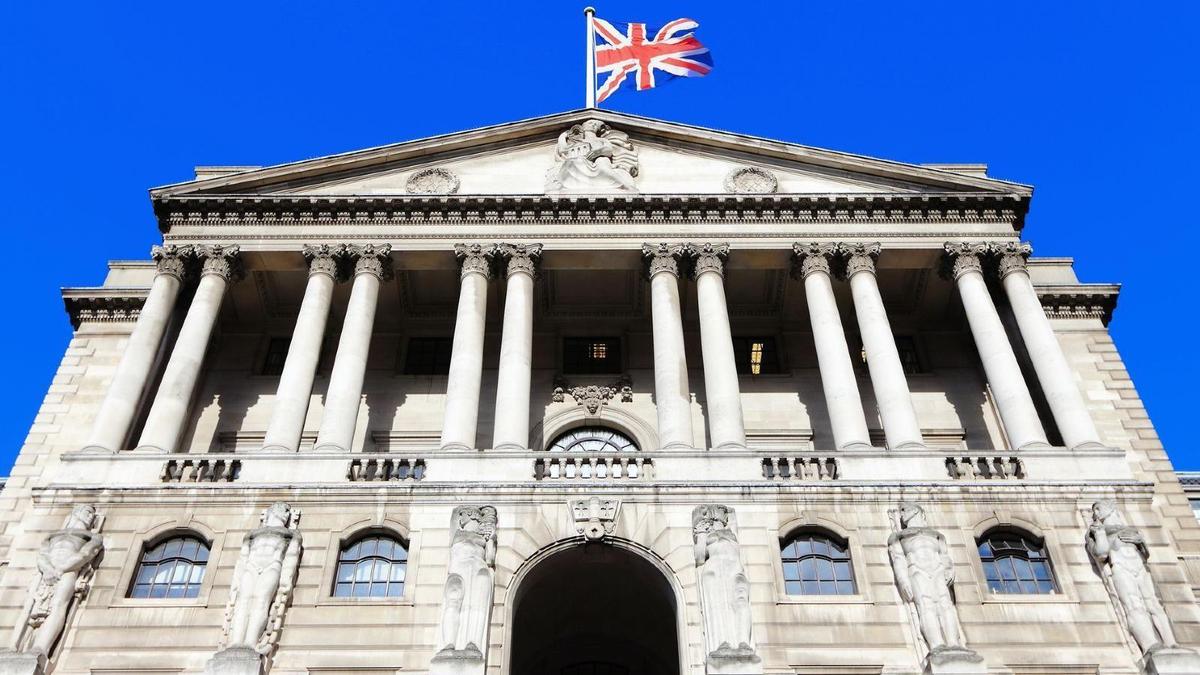BANK OF ENGLAND HAWKISH AMID WEAK ECOMOMIC OUTLOOK

The Bank of England expects to have a large but somewhat leaner balance sheet when it starts to run down its 895 billion pound asset purchase programme, and will take steps to ensure this does not push up short-term rates. Last month the BoE announced that it expected to stop reinvesting the proceeds of maturing bonds from its quantitative easing programme once it had raised interest rates to 0.5% from their current 0.1%.
The U.K.’s biggest business lobby warns that higher taxes to fix public finances after the pandemic risk derailing economic growth. Comments by the Confederation of British Industry director general in a speech due Monday reflect growing unease about the government’s approach toward business. Britain is also facing persistent gaps in the supply of popular food and drink items that could become permanent due to a worker shortfall.
Investors also have pulled the plug on bullish pound bets. Net leveraged futures and options positions on the British currency flipped short for the first time since December, according to the latest data from the Commodity Futures Trading Commission. The pound is the best performing Group-of-10 currency year to date -- up over a percent against the dollar -- so some degree of caution isn't surprising. Sterling traders are now weighing a weakening U.K. economy against signs of renewed hawkishness from the Bank of England. Aside from the recent disappointing GDP figures, the end of several government support programs this month -- put in place to help people through the crisis -- could also weigh on sentiment. And the announcement of higher payroll taxes to help fund the NHS won't help dispel the suspicion that there are downside risks to the U.K. economic outlook.
Policymakers would consider outright sales once they had raised the BoE’s main interest rate to 1%. Andrew Hauser, the BoE’s executive director for markets, also said financial markets should not expect the central bank to intervene as aggressively in future as it did in March 2020 when fear of the COVID-10 pandemic pushed up bond yields. Governor Andrew Bailey told lawmakers last week that he did not expect this policy to push bond yields noticeably higher, and that it was aimed at ensuring the BoE continued to have room to undertake asset purchases during future crises. Hauser, in a speech to the International Finance and Banking Society, said he expected the size of the BoE’s balance sheet -- which reflects QE purchases, banknotes in issue and other market operations -- to vary as the BoE smooths out the economic cycle. Overall the size of the BoE’s balance sheet would fall but remain larger than before, he added. “We expect to adopt a market-led approach, in which we allow reserves to fall as QE assets roll off, but stand ready to replace any demand shortfall that might arise through shorter term open market operations,” he said in a speech published on Monday.
Meanwhile, The FTSE 100 rose on Monday, trying to recover from last week's 1.5% loss, as the UK is preparing for a mass booster vaccination program in an attempt to prevent the imposition of mandatory vaccine certificates in England. Still, investors continued to worry about a slowing economic growth and rising inflation as well as China's regulatory crackdown. Among single stocks, Associated British Foods slipped 3.7% as quarterly sales at Primark were lower than expected, but the company raised its full-year profit outlook.
Stocks in Europe look set to open a shade lower, after Asian equities fell on renewed concerns over the pandemic as well as China's regulatory crackdown. It’s a quiet week for earnings, with Abcam, Helvetia and ITM Power reporting in Europe, along with a sales update from AB Foods. In the U.S., Oracle is the only major report. OPEC releases its Monthly Oil Market Report.


